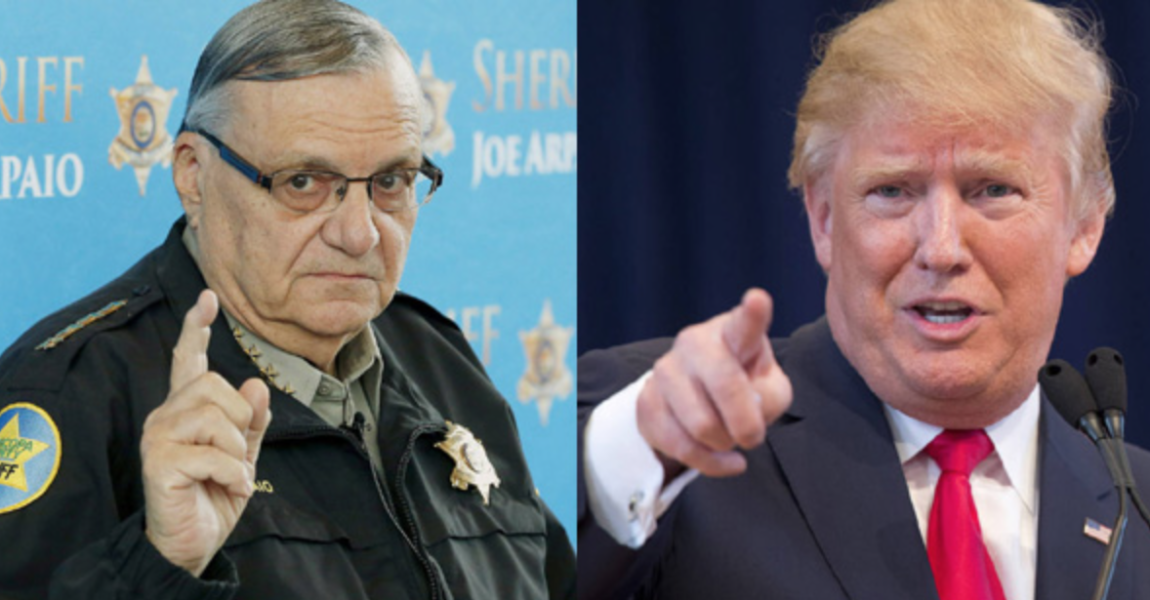
Presidential Pardons
Last week, President Trump issued a pardon to the famous Sheriff Joe Arpaio of Maricopa County, Arizona. The Eighty Five year old Sheriff had been found guilty of Contempt for defying orders of a Federal Court. The orders had banned his staff from targeting individuals suspected of being illegal immigrants without legal cause.
The power of a President to issue Pardons derives from Article II of the Constitution which states: “The President . . . shall have Power to grant Reprieves and Pardons for offenses against the United States, except in cases of impeachment.”
The effect of a Pardon is that it totally erases both the conviction and the punishment. As has been stated by the Supreme Court, “(I)n the eyes of the law the offender is as innocent as if he had never committed the offense.”
A fully pardoned offender has all his rights restored. He can practice a profession. And he can run for office. Something Sheriff Joe has implied he just might do.
The concept of Executive Pardon came to us from England where the Crown had absolute power to issue Pardons and alter sentences.
As stated in the Constitution, it applies only to offenses against the United States. It does not apply to State Law. For example, a presidential pardon could not be issued for a murder conviction obtained in state court.
It is noteworthy, however, that Governors have similar powers and they use them in the same way. For example, Governor Schwarzenegger, on his last day in office, infamously commuted the sentence of the son of the Speaker of the Assembly, a political ally. The son had been convicted of being an accessory to murder.
Although, President Trump has been roundly criticized for issuing a Pardon to Sheriff Joe because he is a political ally, his actions are not without historical precedent.
In 1798 President John Adams, an ardent Federalist, used the Alien and Sedition Acts to persecute those who opposed Federalist policies. Many of those convicted were political allies of Thomas Jefferson, an Anti-Federalist. Jefferson went on to defeat Adams for re-election. The Sedition Acts were repealed and Jefferson pardoned all his political friends who had been convicted under the acts.
Modern examples include President Bush pardoning Scooter Libby for leaking a name of a CIA operative for political reasons. President Clinton pardoned his friend Susan McDougal who was convicted of contempt for refusing to testify concerning his involvement in a financial scandal. Famously President Ford pardoned his ally, President Richard Nixon, for any crimes he may have committed while in office.
In more general terms, Presidents have pardoned whole classes of individuals. Those Include deserters during the Civil War by President Lincoln; Ex-Confederates were pardoned by President Andrew Johnson; draft evaders during the Viet Nam war were pardoned by President Jimmy Carter and a legion of individuals convicted of drug crimes were pardoned by President Obama.
And of course, President Obama also issued the infamous pardon of Chelsea Manning, someone accused of committing treason against the United States.
Sheriff Joe’s toughness as a Sheriff made him famous. He once put all prisoners in pink underwear and housed convicts in a tent city in the intense Arizona heat. He was popular and routinely re-elected, despite his department’s spotty record of effectiveness in the investigation of major crimes in his county. Controversy dogged him for years and the voters eventually turned him out of office.
He was also a lighting rod for civil rights lawsuits and federal investigations for his policies regarding illegal immigration. Those policies led him to become one of President Trump’s earliest supporters. President Obama’s Justice department, however, continued to aggressively pursue Sheriff Joe. And he was eventually convicted. Then President Trump was elected and pardoned him.
Was the pardon controversial? You bet. Was the pardon within the President’s constitutional power to do so? Undoubtedly. Was the pardon of a political ally unprecedented? Well, . . . not really.